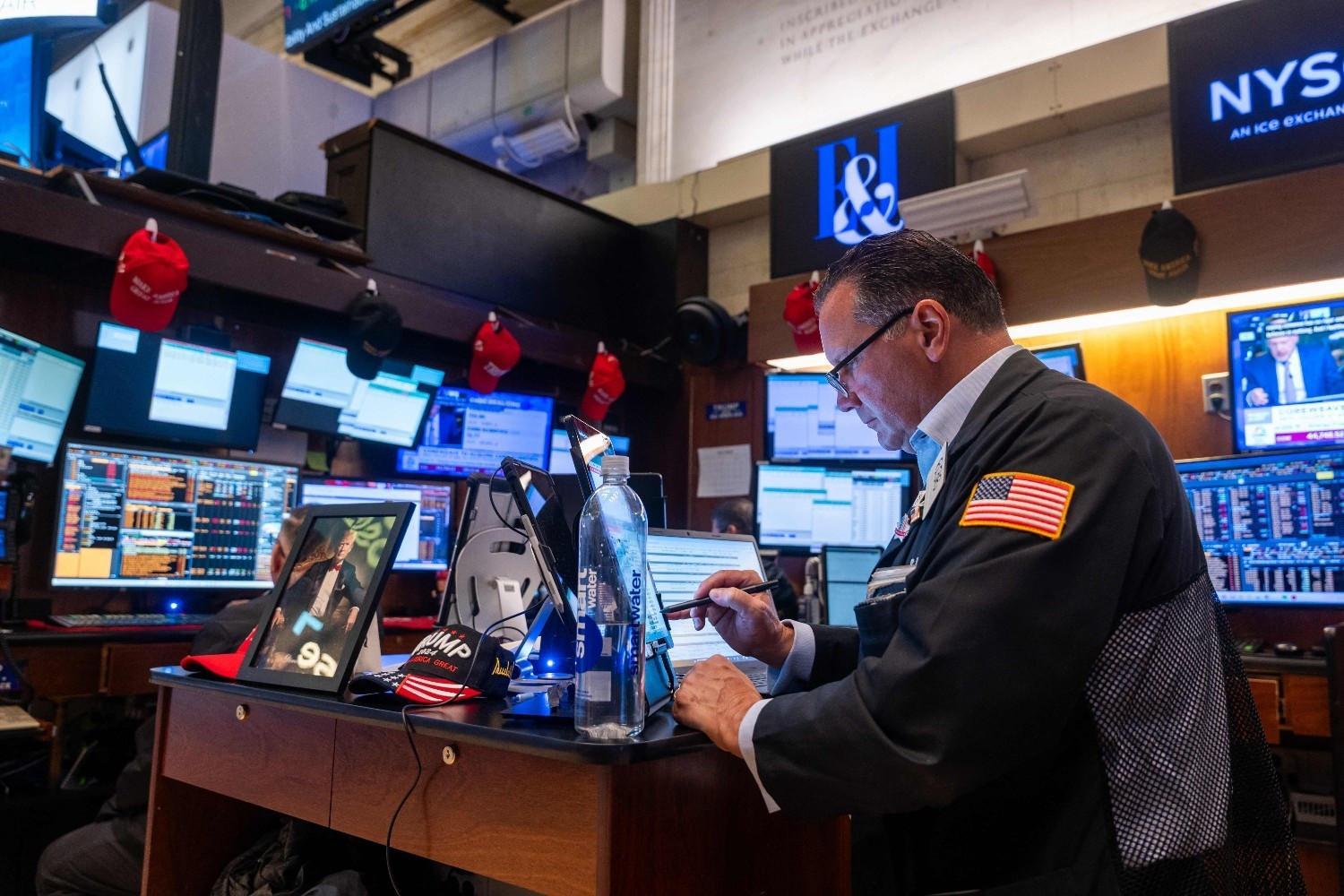
Traders work on the floor of the New York Stock Exchange (NYSE) on July 07, 2025, in New York City.
When it comes to Donald Trump's repeated tariff threats and financial markets, it looks like "TACO" is the dish investors are dining on, analysts said.
The acronym, coined by a Financial Times columnist and standing for "Trump Always Chickens Out", has become a lodestar for equities, currencies and commodities traders, resulting in diminishing reactions to the U.S. president's warnings.
To be sure, Trump's vows of future tariff hikes still weigh on markets, just not to the extent they used to.
When his "Liberation Day" protectionist offensive was unveiled in April, the reaction was panic. Now, said analysts, traders take his tariff announcements in their stride.
On July 14, stock markets largely shrugged off Trump's weekend threat to impose 30-percent tariffs on the EU.
"It's amazing in fact, the tariff rates are as high as they were announced back in April, yet the market reaction is completely different," Ipek Ozkardeskaya, an analyst at Swissquote Bank, told AFP.
"Investors continue to bet that Trump 'will chicken out', the so-called TACO trade, and that negotiations will extend beyond Aug. 1," when the tariffs are to come into effect,” she said.
Despite Trump trying to raise the stakes with several tariff announcements over recent days, targeting a dozen countries and products such as copper, "the market has increasingly overcome its queasiness," said Jim Reid, a Deutsche Bank analyst.
U.S. stock indices are hitting record highs, while European equities are also proving attractive to buyers.
Germany's DAX index has risen more than 20 percent since the beginning of this year, despite the export-dependent country being among the more exposed to Trump's levies.
That resilience speaks to traders becoming inured to Trump's pattern of behavior that goes from headline threats, to delays, and then in some cases to negotiated outline deals.
"Markets aren't collapsing because they've grown conditioned to tariff threats as part of the U.S. negotiating playbook. Investors see this more as tactical leverage than an immediate economic cliff," Stephen Innes, managing partner at SPI Asset Management, said.
When it comes to the latest threat, "the real tell is that the EU hasn't responded with reciprocal tariffs, which suggests Brussels still thinks a negotiated outcome is possible and that's keeping risk sentiment afloat," he said.
"The markets expect the [EU-U.S.] negotiations to continue," agreed Alexandre Baradez, head of market analysis at IG France.
But there is a lingering worry that Trump this time might make good on his threat.
"If huge tariffs do get imposed on Aug. 1 in thin holiday markets, we could get a sizeable market reaction," said Deutsche Bank's Reid.